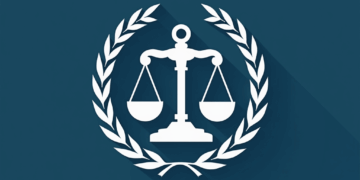No products in the cart.
Definition and nature of the power of acquiescence The power of acquiescence is a form of power of representation developed by case law in which a person (the represented party) is aware of and consciously tolerates the actions of another person (the representative) without the express granting of a power of attorney. Although not expressly regulated by law, this type of representation is based on the principles of good faith (Section 242 BGB) and serves to protect legal transactions in good faith.
Key Facts
- The power of attorney by estoppel is a form of power of representation developed by case law without the express granting of a power of attorney.
- Prerequisites: Representative acts regularly, represented party tolerates the action, and contractual partner assumes power of representation.
- If the requirements are met, the legal transaction binds the represented party as in the case of an express power of attorney.
- In contrast to a prima facie power of attorney, the represented party is aware of the acquiescence.
- Limits exist if the represented party has no knowledge of the unauthorized action or the contractual partner is acting in bad faith.
- A practical example: employee concludes transactions without express authorization, but with the knowledge of the managing director.
- Power of attorney by estoppel ensures legal certainty in business transactions and protects partners acting in good faith.
Prerequisites for a power of attorney for acquiescence The following conditions must be met for a power of attorney for acquiescence to exist:
- The representative repeatedly and regularly acts as a representative, although he has not been granted express power of attorney.
- The represented party is aware of this action, but does nothing to prevent it.
- The contractual partner may justifiably assume, based on the behavior of the represented party, that a power of representation exists.
If these requirements are met, the same legal consequences apply as if an express power of attorney had been granted: The legal transaction directly binds the represented party.
While the represented party consciously tolerates the representative’s actions in the case of an acquiescence power of attorney, the prima facie power of attorney is characterized by the fact that the represented party is unaware of the unauthorized action, but could have recognized and prevented it with reasonable care. However, both forms are based on the contractual partner’s trust in the existence of a power of attorney and therefore protect bona fide business transactions.
The legal consequences of the power of attorney by estoppel The legal consequence of the power of attorney by estoppel is that the represented party is treated in the same way as if they had actually granted a legal power of attorney. The legal transaction becomes effective directly for and against the represented party. The represented party is barred from subsequently claiming that no power of attorney existed.
There are limits to the power of acquiescence where the represented party has no knowledge of the unauthorized actions of the representative or demonstrably had no opportunity to intervene. It is also excluded if the contractual partner is acting in bad faith, i.e. knew or should have known that no genuine power of attorney existed.
Typical examples of acquiescence authorization A practical example of acquiescence authorization is the employee of a company who regularly concludes transactions for the company over a long period of time, although he or she does not formally have any express power of representation. If the managing director is aware of this and does not intervene, the contractual partner can trust that the employee is authorized and the contracts concluded bind the company.
Significance of the power of acquiescence in legal transactions The power of acquiescence is of considerable importance for legal certainty in business transactions, as it prevents persons from subsequently being able to invoke a lack of power of representation if they have deliberately allowed their supposed representative to act. It forces the parties involved to react to recognizably unauthorized representation at an early stage and thus serves to protect bona fide business partners.
Conclusion on the power of attorney for acquiescence In summary, the power of attorney for acquiescence is an important instrument for ensuring trust and legal certainty in business transactions. It supplements the classic rules of representation and ensures that persons who knowingly tolerate the appearance of an unauthorized representative cannot subsequently argue to the detriment of bona fide third parties that no power of attorney existed.





















